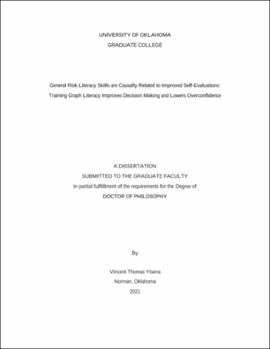| dc.description.abstract | Overconfidence commonly refers to a cognitive bias in which people express more subjective confidence in their abilities than can be objectively justified. Similarly, the “Unskilled and Unaware” literature demonstrates that individuals who are lowest in experience or knowledge are often the most overconfident. Further, recent research on decision aids and training programs suggests that improving task-specific skills can causally reduce task-specific overconfidence biases. However, these training benefits do not appear to transfer or otherwise reduce overconfidence on untrained judgment tasks more generally. One important example of general training is Morewedge et al. (2015), where training specific decision biases (e.g., confirmation bias) led to reduced overconfidence for better-than-average overconfidence effects. While these findings are promising, research has not yet investigated the potential benefits of programs designed to train general decision making skills, such as risk literacy skills (i.e., the ability to evaluate and understand risk; See Cokely et al., 2018). Accordingly, I report results from the first experimental study to test the benefits of an online risk literacy tutor (tutor.lolevo.com) designed to improve graph literacy skills (e.g., interpreting bar, pie, line, icon arrays, and decision tree graphs). Statistical and structural modeling results revealed that the graph literacy tutor causally improved graph literacy skills, which in turn causally reduced biases on several untrained, conceptually distinct decision tasks (framing effects, ratio bias, and sunk costs). Moreover, improvements in graph literacy also transferred benefits to untrained overconfidence measures, causally improving self-evaluations on the untrained decision tasks. Consistent with Skilled Decision Theory, results indicated that risk literacy skills are trainable and are related to general decision making skills. Further, results suggested that training risk literacy skills could have implications for an abundance of risky situations (e.g., Covid-19 risk knowledge, heart attack symptom recognition) because training risk literacy can reduce many kinds of decision biases, including multiple types of potentially trainable overconfidence biases (e.g., overestimation, overprecision, overplacement). In addition to other theoretical implications, it is noteworthy that the current study appears to be the first to discover a direct causal link between risk literacy skills and valuable metacognitive skills. Risk literacy skills causally promote skilled self-evaluation and accurate social comparisons. | en_US |

